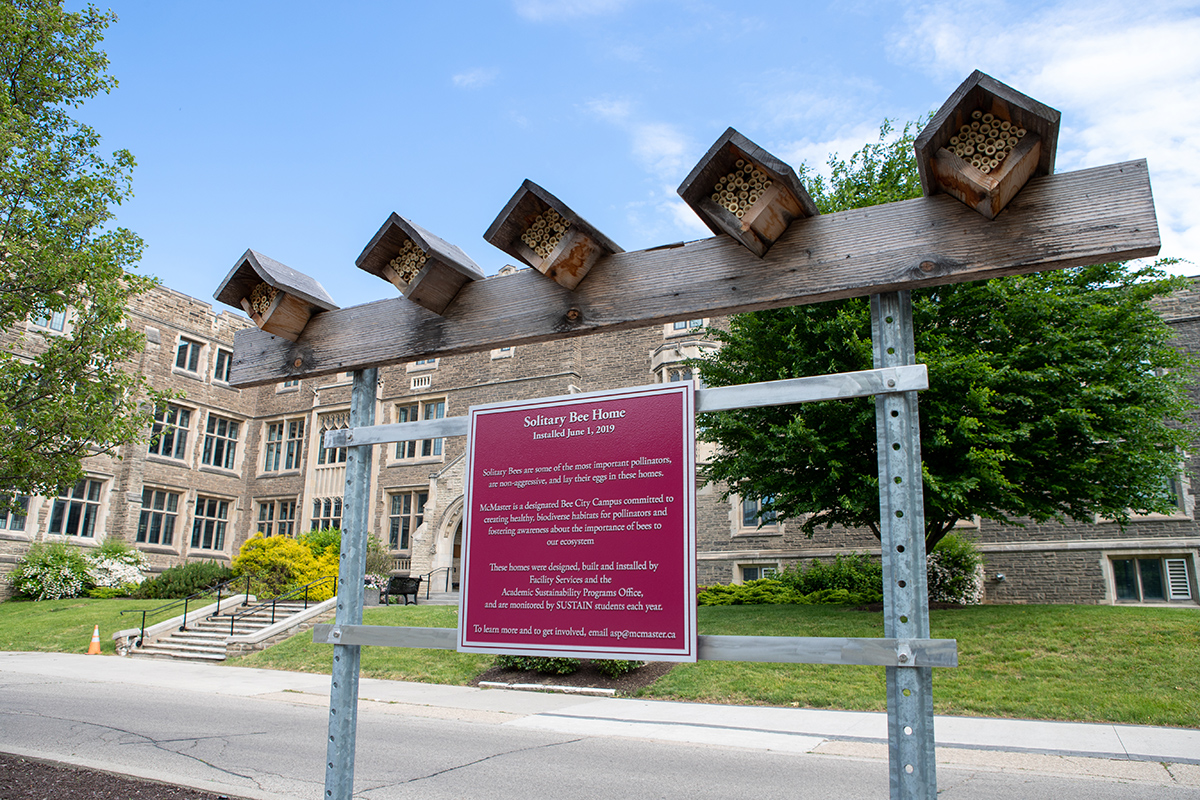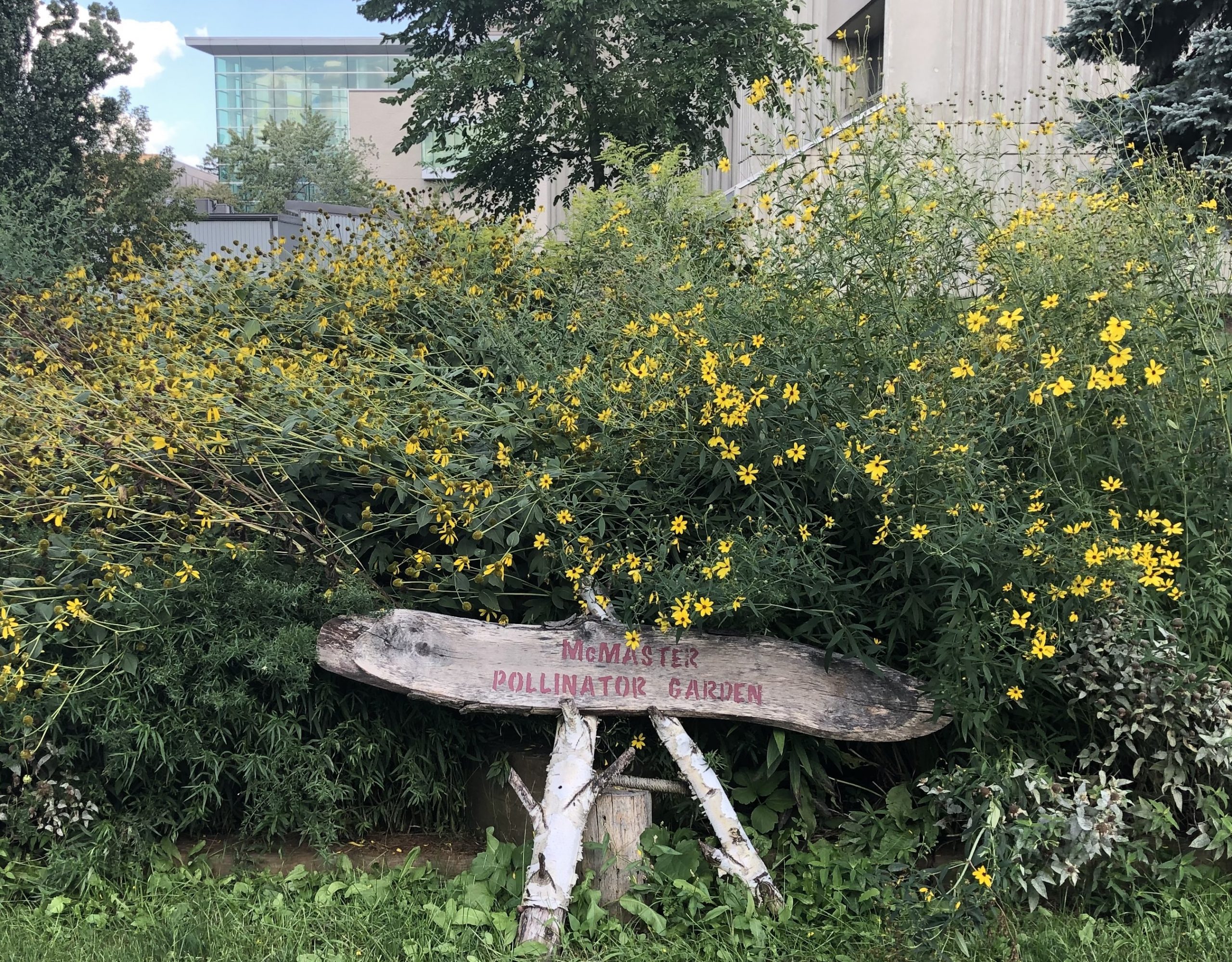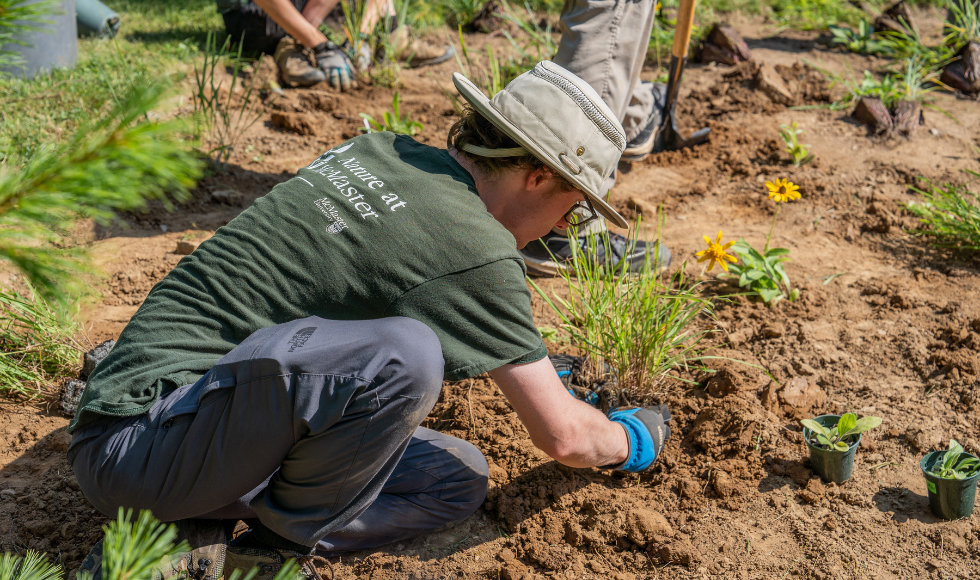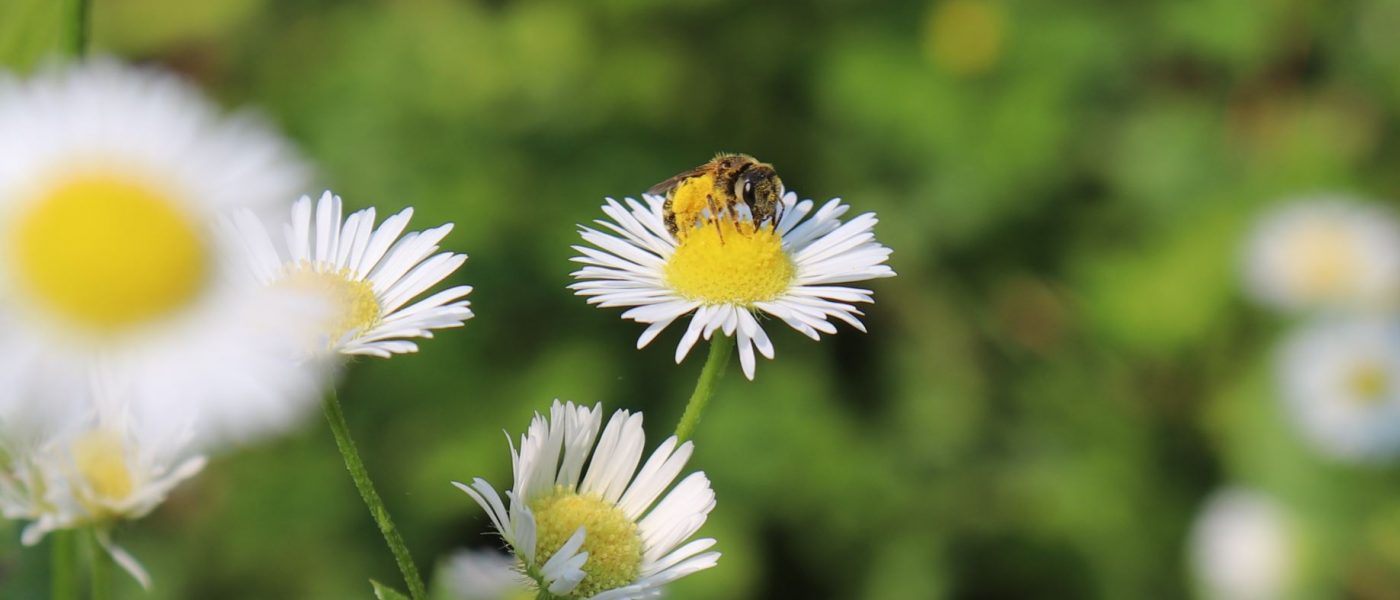Information Box Group

McMaster Solitary/Native Bee Project Learn More + Donate
The Native Bees at McMaster project began in 2019 to support native bee species on campus. Each term students enrolled in SUSTAIN courses continue the work of their peers to further expand the project and achieve new goals with Facility Services team members. The project is run by the Academic Sustainability Programs Office, with support from Facility Services.

McMaster Bee Certified Campus Learn More
In February 2021 McMaster University became Canada’s 14th certified Bee Campus, as recognized by Bee City Canada. McMaster is working to protect and enhance pollinators on campus through the 5 objectives set out in the designation.
1. Adopt the Bee City Canada Resolutions
2. Maintain a Bee City Campus Pollinator Team
- Currently comprised of members from Facility Services, Academic Sustainability Programs Office, and Department of Biology
3. Maintain a Pollinator Habitat Action Plan
4. Promote Education about Pollinators
5. Celebrate Pollinators
McMaster School of the Arts/McMaster Outdoor Club Solitary Bee Boxes
In the fall of 2014 and 2017 students from the School of the Arts and the McMaster Outdoor Club worked to create solitary bee homes using recycled wood and other materials. The homes were installed on west campus by Parking Lot P (2014) and outside of the Dr. Robert and Andrée Rhéaume Fitzhenry Studios and Atrium (2017). The projects were generously funded by OPIRG McMaster.

Department of Biology Native Pollinator Garden
In the summer of 2018 a native pollinator garden was installed outside of the Life Sciences Building. Science students Katrina Cantera and Molly Bradford came up with the idea for the garden. The pollinator garden is home to native plants that attract a wide range of pollinators, including bees, butterflies, bats and moths. The garden contains 12 different species of native plants, such as serviceberry shrubs, butterfly weed, milkweed, cardinal flower and goldenrod. The garden was relocated in 2022 to the east side of the Ivor Wynne Centres High Performance Training Space.

Adam Chiaravalle Native Bee Nesting Garden
In the Spring and Fall of 2023 McMasters first native garden dedicated to ground nesting bees and other pollinators was established. The project was designed by students from Sustainability 3S03 with support from the Academic Sustainability Programs Office, McMaster Grounds, Nature at McMaster, the McMaster Biology Greenhouse and the Dr. Susan Dudley Bee Lab from the Department of Biology. The area was planted and seeded with native flowers and shrubs to provide food sources for our native pollinators. Bare ground and patchiness were prioritized to provide ample space for ground nesting bees (making up over 80% of all bee species in Ontario!). A sand pit was also added for rare sand specialist bees.
The garden is located behind Alumni Memorial Hall and beside the Indigenous Circle and Cootes Paradise.
This garden has been dedicated to Adam Chiaravalle, McMaster alumni, staff, and long time supporter of pollinators and sustainability on campus.

